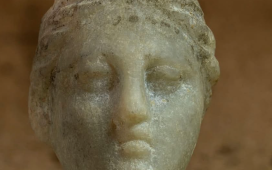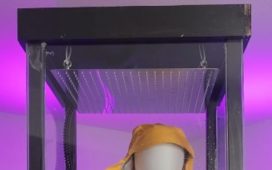[ad_1]
A new piece of research suggests that at quantum level there are actually two versions of the same realty. It also touches on the complex idea two people are capable of coming to different conclusions about the same photon, a particular type of particle, and that both can be correct in their observations, as Fox News reports. The theory attempts to prove that the resulting statements of the two observers are unable to contradict one another. The study reads: “In quantum mechanics, the objectivity of observations is not so clear, most dramatically exposed in Eugene Wigner’s eponymous thought experiment where two observers can experience fundamentally different realities.
“While observer-independence has long remained inaccessible to empirical investigation, recent no-go-theorems construct an extended Wigner’s friend scenario with four entangled observers that allows us to put it to the test.
“In a state-of-the-art photon experiment, we here realise this extended Wigner’s friend scenario, experimentally violating the associated Bell-type inequality by 5 standard deviations. This result lends considerable strength to interpretations of quantum theory already set in an observer-dependent framework and demands for revision of those which are not.”
Referring to two alternate realities, study co-author, Martin Ringbauer, told Live Science that “you can verify both of them”.
He added however, that advances in the theory were first required to enable them to prove Wigner’s hypothesis, which was first proposed in 1961.
Mr Ringbauer added: “Theoretical advances were needed to formulate the problem in a way that is testable. Then, the experimental side needed developments on the control of quantum systems to implement something like that.”
The scientists also said that to test the idea they had “two different laboratories, each involving an experimenter and their friend”.
They used two pairs of entangled photons, which allowed for their fates to be intertwined and people to measure one photon in the pair, record their results and repeat the process, which wold test the second photon using quantum memory, where light is mapped onto atoms and recovered back in its original shape.
The idea was first introduced by Wigner in 1961, and the thesis was eventually given the nickname “Wigner’s friend”, though only one scenario was used.
Quantum mechanics works by giving detail on how the world operates at a scale so tiny that the rules of physics do not apply.
[ad_2]
READ SOURCE













